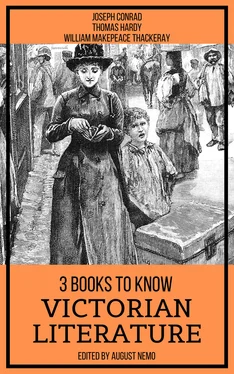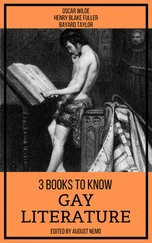And at last, in its curved and imperceptible fall, the sun sank low, and from glowing white changed to a dull red without rays and without heat, as if about to go out suddenly, stricken to death by the touch of that gloom brooding over a crowd of men.
Forthwith a change came over the waters, and the serenity became less brilliant but more profound. The old river in its broad reach rested unruffled at the decline of day, after ages of good service done to the race that peopled its banks, spread out in the tranquil dignity of a waterway leading to the uttermost ends of the earth. We looked at the venerable stream not in the vivid flush of a short day that comes and departs for ever, but in the august light of abiding memories. And indeed nothing is easier for a man who has, as the phrase goes, "followed the sea" with reverence and affection, than to evoke the great spirit of the past upon the lower reaches of the Thames. The tidal current runs to and fro in its unceasing service, crowded with memories of men and ships it had borne to the rest of home or to the battles of the sea. It had known and served all the men of whom the nation is proud, from Sir Francis Drake to Sir John Franklin, knights all, titled and untitled—the great knights-errant of the sea. It had borne all the ships whose names are like jewels flashing in the night of time, from the Golden Hind returning with her round flanks full of treasure, to be visited by the Queen's Highness and thus pass out of the gigantic tale, to the Erebus and Terror, bound on other conquests—and that never returned. It had known the ships and the men. They had sailed from Deptford, from Greenwich, from Erith—the adventurers and the settlers; kings' ships and the ships of men on 'Change; captains, admirals, the dark "interlopers" of the Eastern trade, and the commissioned "generals" of East India fleets. Hunters for gold or pursuers of fame, they all had gone out on that stream, bearing the sword, and often the torch, messengers of the might within the land, bearers of a spark from the sacred fire. What greatness had not floated on the ebb of that river into the mystery of an unknown earth! . . . The dreams of men, the seed of commonwealths, the germs of empires.
The sun set; the dusk fell on the stream, and lights began to appear along the shore. The Chapman lighthouse, a three-legged thing erect on a mud-flat, shone strongly. Lights of ships moved in the fairway—a great stir of lights going up and going down. And farther west on the upper reaches the place of the monstrous town was still marked ominously on the sky, a brooding gloom in sunshine, a lurid glare under the stars.
"And this also," said Marlow suddenly, "has been one of the dark places of the earth."
He was the only man of us who still "followed the sea." The worst that could be said of him was that he did not represent his class. He was a seaman, but he was a wanderer, too, while most seamen lead, if one may so express it, a sedentary life. Their minds are of the stay-at-home order, and their home is always with them—the ship; and so is their country—the sea. One ship is very much like another, and the sea is always the same. In the immutability of their surroundings the foreign shores, the foreign faces, the changing immensity of life, glide past, veiled not by a sense of mystery but by a slightly disdainful ignorance; for there is nothing mysterious to a seaman unless it be the sea itself, which is the mistress of his existence and as inscrutable as Destiny. For the rest, after his hours of work, a casual stroll or a casual spree on shore suffices to unfold for him the secret of a whole continent, and generally he finds the secret not worth knowing. The yarns of seamen have a direct simplicity, the whole meaning of which lies within the shell of a cracked nut. But Marlow was not typical (if his propensity to spin yarns be excepted), and to him the meaning of an episode was not inside like a kernel but outside, enveloping the tale which brought it out only as a glow brings out a haze, in the likeness of one of these misty halos that sometimes are made visible by the spectral illumination of moonshine.
His remark did not seem at all surprising. It was just like Marlow. It was accepted in silence. No one took the trouble to grunt even; and presently he said, very slow—
"I was thinking of very old times, when the Romans first came here, nineteen hundred years ago—the other day. . . . Light came out of this river since—you say Knights? Yes; but it is like a running blaze on a plain, like a flash of lightning in the clouds. We live in the flicker—may it last as long as the old earth keeps rolling! But darkness was here yesterday. Imagine the feelings of a commander of a fine—what d'ye call 'em?—trireme in the Mediterranean, ordered suddenly to the north; run overland across the Gauls in a hurry; put in charge of one of these craft the legionaries,—a wonderful lot of handy men they must have been too—used to build, apparently by the hundred, in a month or two, if we may believe what we read. Imagine him here—the very end of the world, a sea the color of lead, a sky the color of smoke, a kind of ship about as rigid as a concertina—and going up this river with stores, or orders, or what you like. Sandbanks, marshes, forests, savages,—precious little to eat fit for a civilized man, nothing but Thames water to drink. No Falernian wine here, no going ashore. Here and there a military camp lost in a wilderness, like a needle in a bundle of hay—cold, fog, tempests, disease, exile, and death,—death skulking in the air, in the water, in the bush. They must have been dying like flies here. Oh yes—he did it. Did it very well, too, no doubt, and without thinking much about it either, except afterwards to brag of what he had gone through in his time, perhaps. They were men enough to face the darkness. And perhaps he was cheered by keeping his eye on a chance of promotion to the fleet at Ravenna by-and-by, if he had good friends in Rome and survived the awful climate. Or think of a decent young citizen in a toga—perhaps too much dice, you know—coming out here in the train of some prefect, or tax-gatherer, or trader even, to mend his fortunes. Land in a swamp, march through the woods, and in some inland post feel the savagery, the utter savagery, had closed round him,—all that mysterious life of the wilderness that stirs in the forest, in the jungles, in the hearts of wild men. There's no initiation either into such mysteries. He has to live in the midst of the incomprehensible, which is also detestable. And it has a fascination, too, that goes to work upon him. The fascination of the abomination—you know. Imagine the growing regrets, the longing to escape, the powerless disgust, the surrender, the hate."
He paused.
"Mind," he began again, lifting one arm from the elbow, the palm of the hand outwards, so that, with his legs folded before him, he had the pose of a Buddha preaching in European clothes and without a lotus-flower—"Mind, none of us would feel exactly like this. What saves us is efficiency—the devotion to efficiency. But these chaps were not much account, really. They were no colonists; their administration was merely a squeeze, and nothing more, I suspect. They were conquerors, and for that you want only brute force—nothing to boast of, when you have it, since your strength is just an accident arising from the weakness of others. They grabbed what they could get for the sake of what was to be got. It was just robbery with violence, aggravated murder on a great scale, and men going at it blind—as is very proper for those who tackle a darkness. The conquest of the earth, which mostly means the taking it away from those who have a different complexion or slightly flatter noses than ourselves, is not a pretty thing when you look into it too much. What redeems it is the idea only. An idea at the back of it; not a sentimental pretense but an idea; and an unselfish belief in the idea—something you can set up, and bow down before, and offer a sacrifice to. . . ."
Читать дальше












